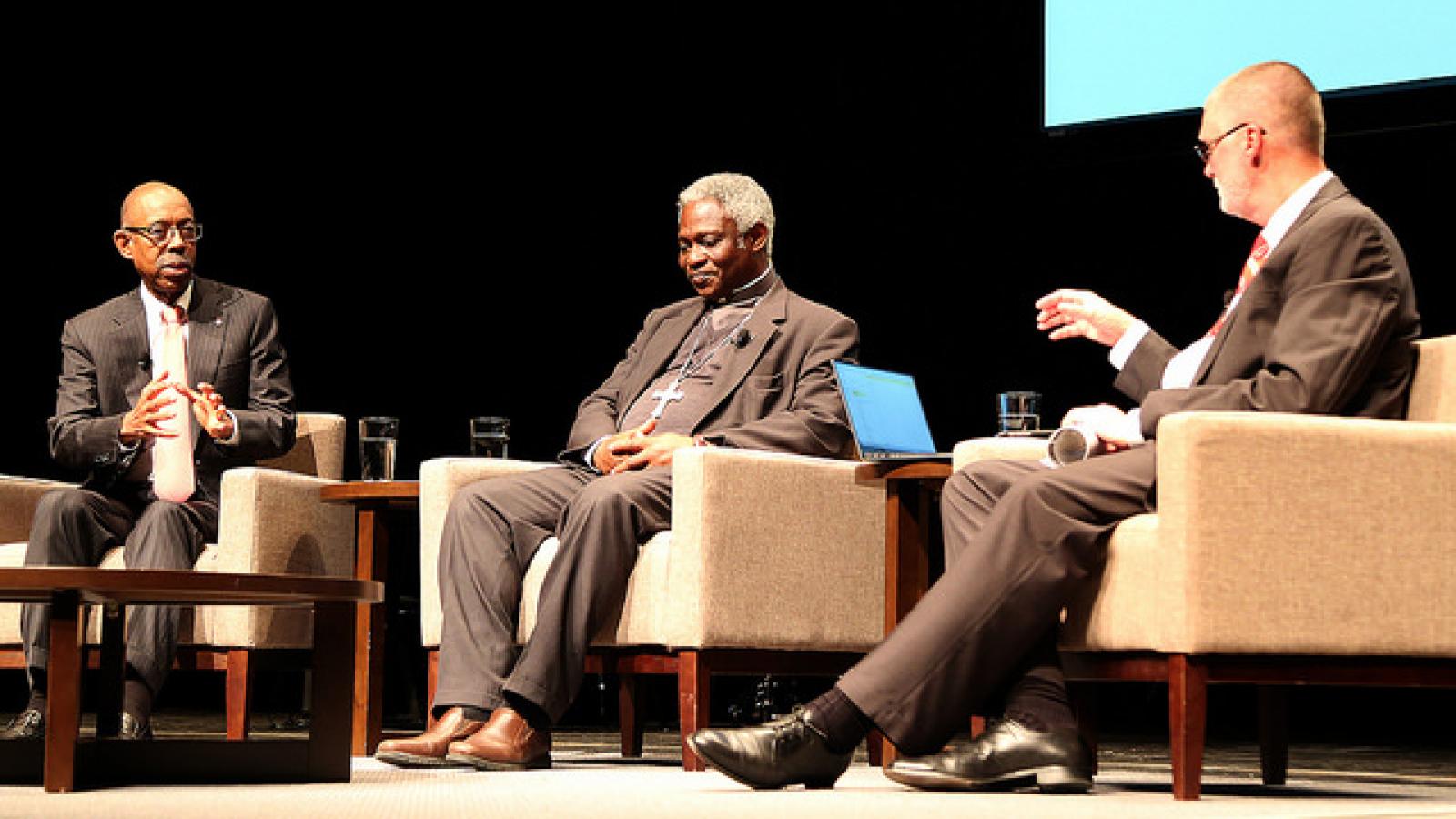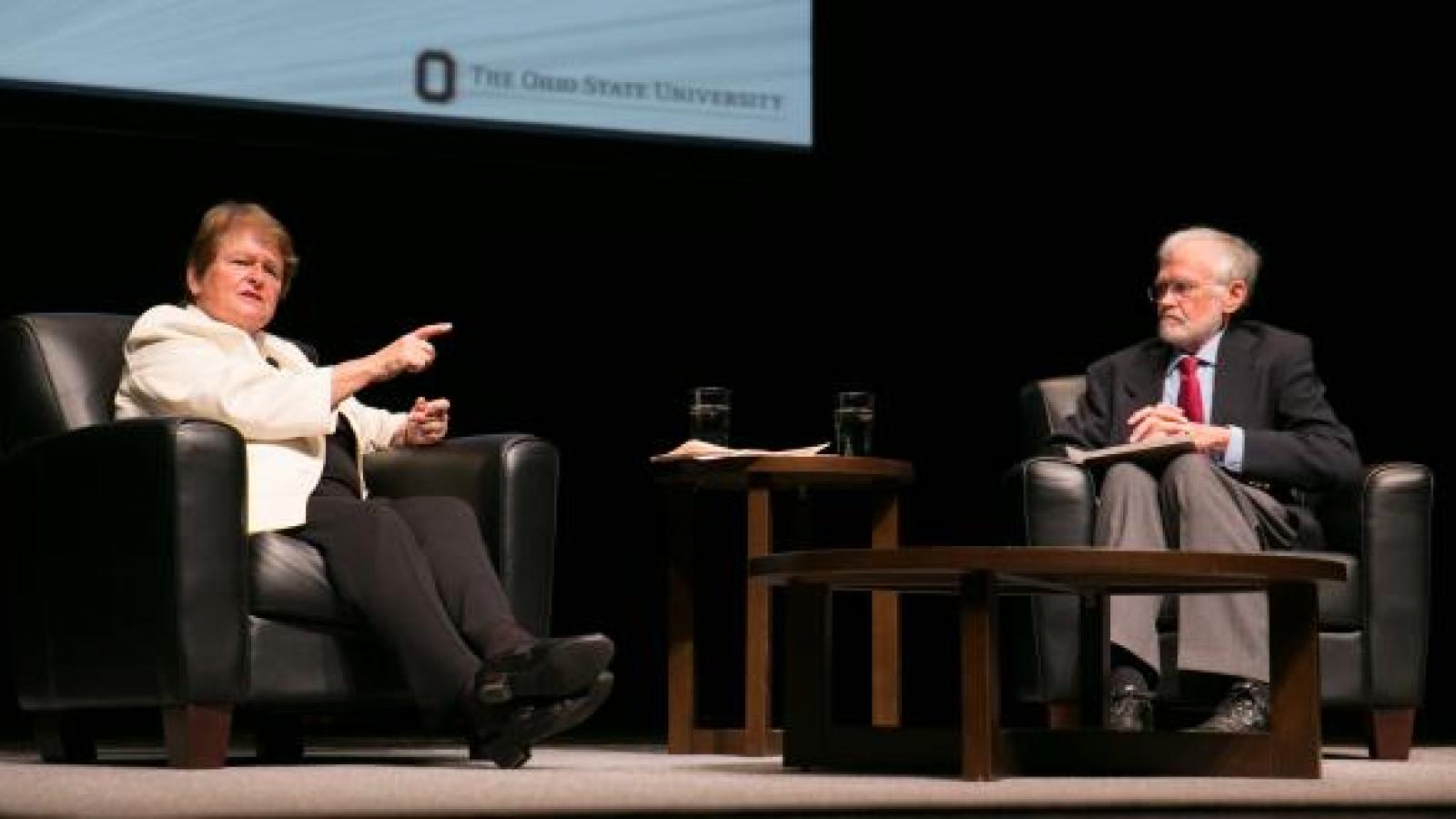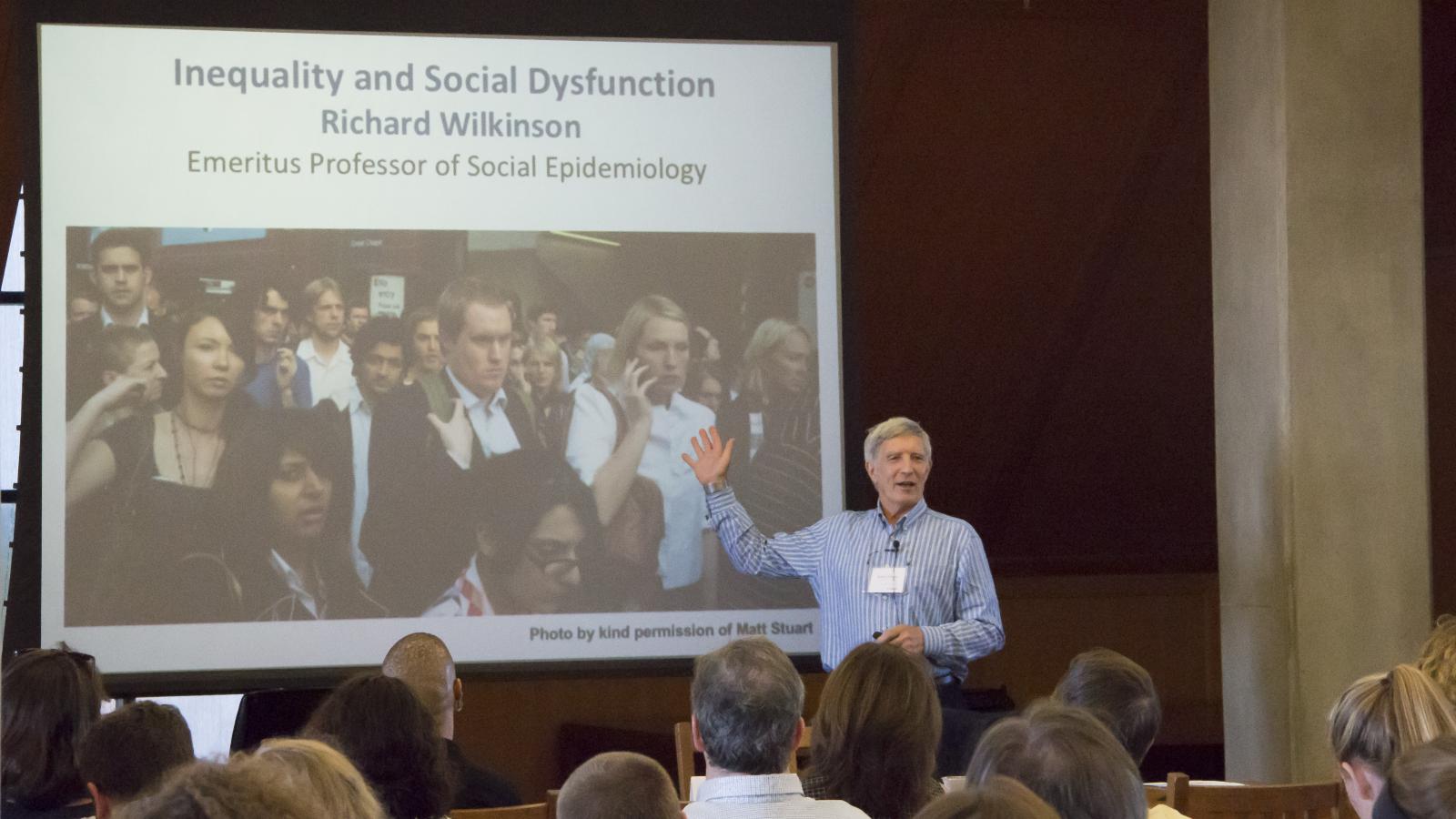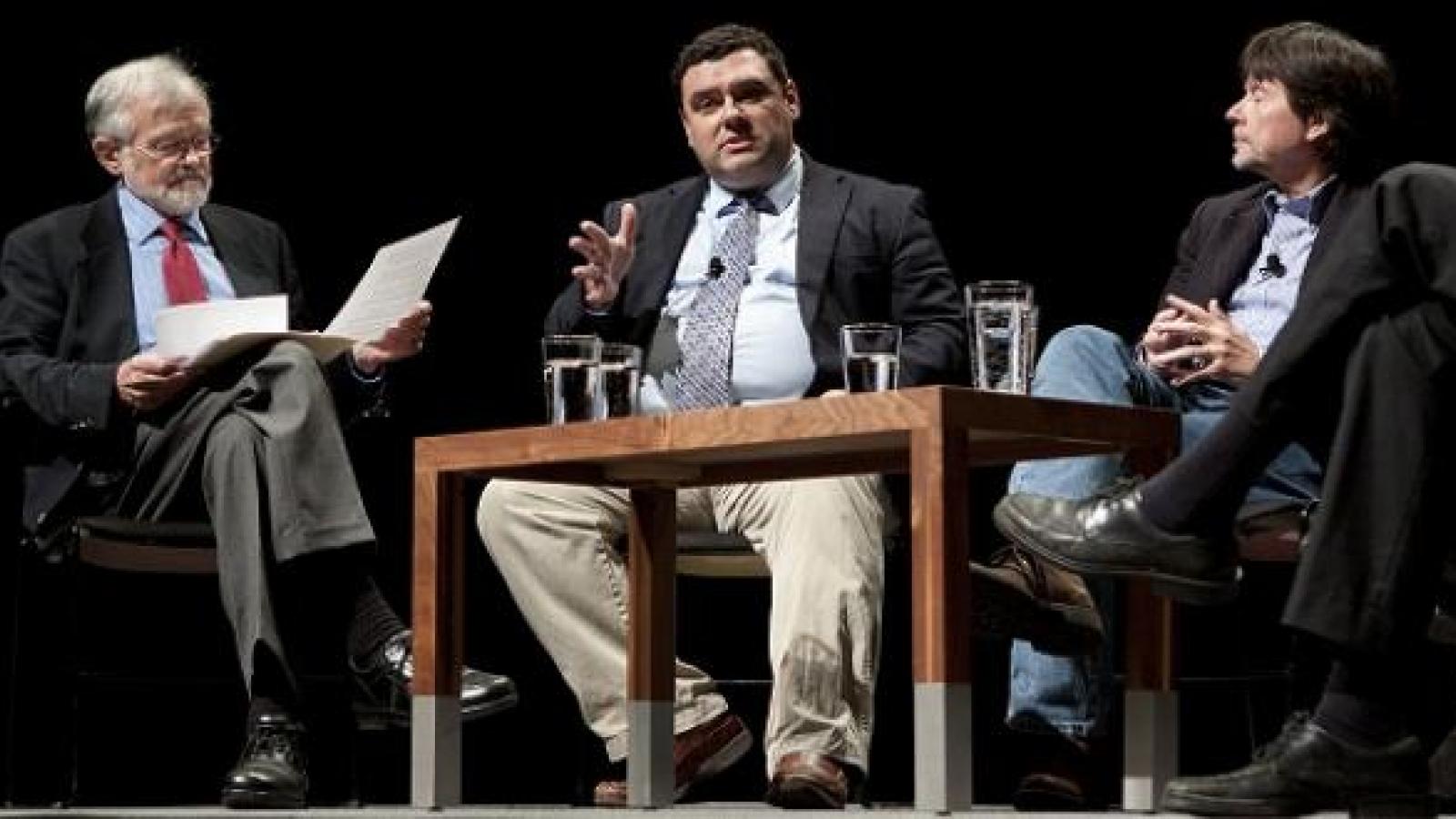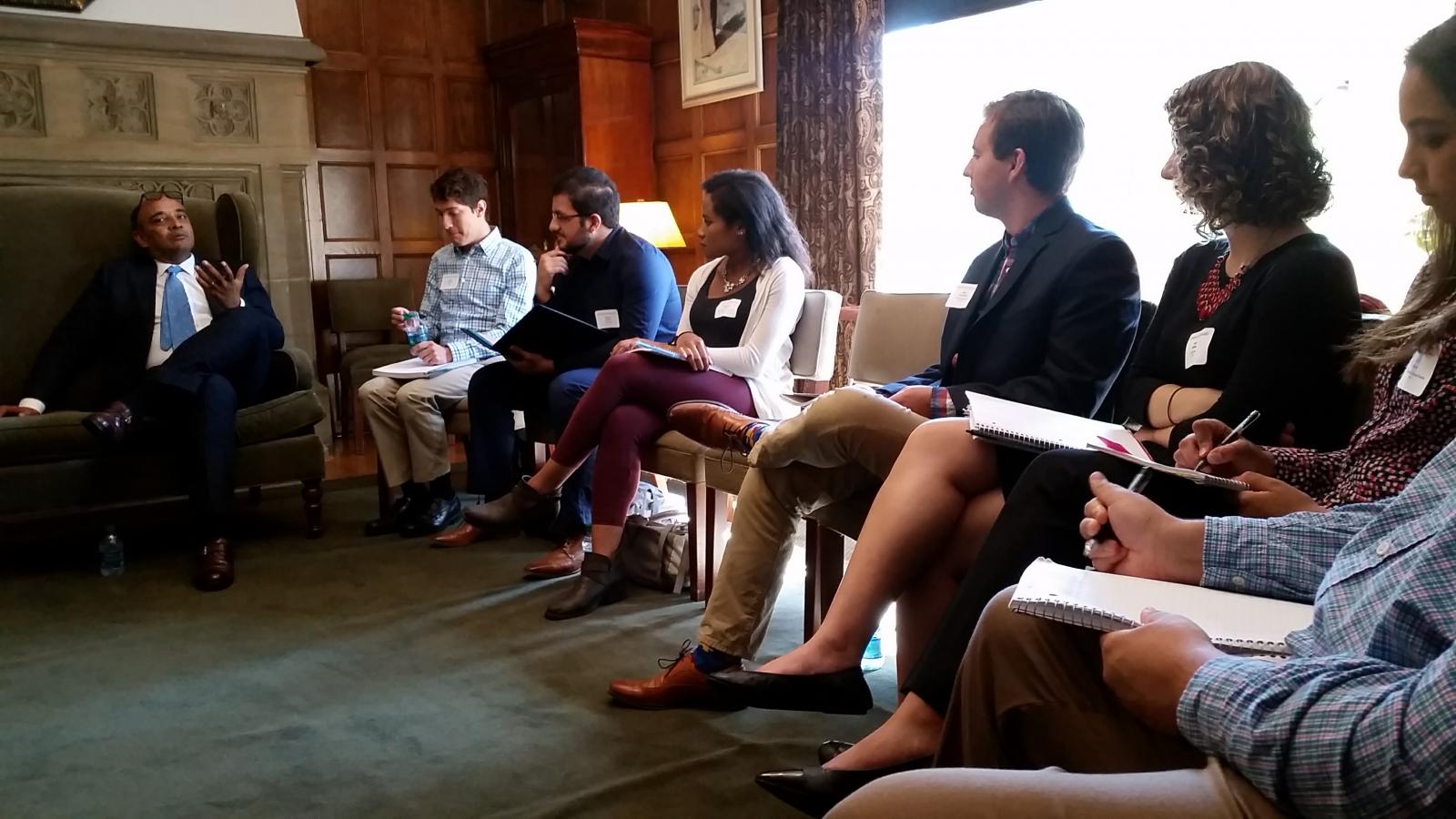Past COMPAS Programs
2023-2024: COMPAS Directions
The special “COMPAS Directions” program recognized 10 years of ethical exploration and dialogue via the Center for Ethics and Human Values’ COMPAS program. Through this unique program, CEHV has fostered civil and informed discussions on controversial topics of public concern. By inviting distinguished guests and colleagues to engage across disciplines and perspectives, COMPAS has created a dynamic and enduring space for nuanced understanding and transformative problem-solving. Additionally, the program has encouraged meaningful interactions among these experts and event attendees, providing a platform for critical and constructive group reflection on timely moral matters. Each year, COMPAS has focused on a specific theme to unite its events and guide an ongoing discussion. As we look back at 10 years of programming, we return to these themes to highlight the continuing urgency and complexity of these conversations.
2022-2023: Education in Our Democracy
The “Education in Our Democracy” COMPAS Program focused attention on questions of how we might make meaning and increase understanding within the context of our pluralistic society. Education, whether it occurs in K-12 settings, the university, or beyond, seems especially well-suited to guide citizens in better appreciating facts and continue in their development of those skills necessary for life together. But, what should be done when citizens disagree about what ought to be taught? What obligations might educational institutions have to the greater public they seek to serve? What dangers to democracy might be forestalled by "good" education – or exacerbated under its flawed forms? How are these questions complicated within a social and political context marked by increasingly diverse views, values, and knowledge standards? While these questions are, perhaps, never very far from the minds of members of a university community, recent legal and political contests may have placed them at the forefront of far broader conversations.
2021-2022: Markets and the Open Society
The 2021-2022 "Markets and the Open Society" COMPAS focused on the benefits and challenges of markets. On the one hand, markets are non-coercive engines of economic growth that extend the frontiers of human well-being and expand the bounds of human capabilities. On the other hand, a one-sided emphasis on economic growth and material gain threatens to limit our moral horizons and degrade the natural environment and the concentration of economic power threatens to restrict individual opportunity, stifle innovation, and distort public discourse. The extension of markets into areas like education, health care, and criminal justice threatens to undermine the distinct ends that those institutions are designed to promote.
2020-2021: COVID-19
The 2020-2021 "COVID-19" COMPAS focused on the economic, political, and social disruptions caused by the COVID-19 pandemic. In particular, this program explored three key areas of concern: Health care. How should we balance public health concerns against concerns about liberty and privacy? What has the current crisis taught us about inequalities of access and affordability in the American health care system? The economy. How much is a life worth? How should we ration risk? How should we balance the value of public health against other important values? What has the current crisis taught us about the strengths and vulnerabilities of an interdependent global economy? Democracy. What is the proper role of expertise and emergency powers in a democracy? How has the pandemic impacted voting and voting rights? What has the current crisis taught us about the relative merits of federal vs. centralized systems of government, or of authoritarian vs. democratic regimes?
2019-20: What Is America?
The 2019-2020 "What Is America?" COMPAS focused on the question of what unites us as Americans, and how this shapes our thinking about the ethical and political challenges that we face. There is mounting evidence that Americans are losing the ability talk to each other in public life. The evidence takes many forms: the increasing polarization of public opinion along partisan lines, the formation of selective information “bubbles,” the growing tendency to label political opponents as enemies, the decline of trust in a variety of social institutions that were once key sites of civil discourse, the emergence of a “winner take all” economy and the sharp rise of economic inequality, the recent surge in open expressions of bigotry and hatred, and the inability of political leaders to respond to a wide range of pressing problems even when there’s strong public support for doing so. The question of what America stands for, and of what it means to be an American, has never been more urgent.
2018-19: Technology
The 2018-2019 Technology COMPAS focused on the many ways in which our lives have been changed by our technological creations. How many times have we heard someone in the tech industry proclaim that their new product is “revolutionary” or “disruptive”? Radical upheaval in the ways we live and communicate is now so frequent that it doesn’t even strike us as unusual. Yet the original iPhone came out only a decade ago, in the same year that Netflix started streaming. Facebook and YouTube came into existence just a few years before that. The 2018-2019 COMPAS program explored the ethical implications of technological development in domains ranging from climate change to friendships.
2017-18: Religion in Public Life
The 2017-18 Religion COMPAS explored the contribution that religious beliefs and institutions can make, and the challenge that they can pose, to public life broadly construed. Across human cultures, religion has been one of the leading sources of both inspiration and conflict among individuals and groups. It has provided the motivation for some of the most significant movements for social reform, and for some of the most significant violations of fundamental moral norms. It has both supported and stood in opposition to domination and social hierarchy. Religious disagreements underlie some of the most contentious political disputes in this country and around the world.
2016-17: Inequality
The 2016-17 COMPAS program focused on the theme of Inequality. “Moral concern with inequality is about far more than economic inequalities,” said CEHV Director Don Hubin. “It is also about political, legal, educational, and health inequalities and how these interact with each other. And it’s about how these inequalities connect with underlying issues of race, gender, ethnicity, religion, LGBTQ status, geography, and other factors.” The 2016-17 program explores the complex ways in which inequalities in resources, opportunity, and treatment—for example, along lines of class, race, and gender—can produce or reinforce unequal outcomes in areas as diverse as health outcomes, criminal justice policy and practices, and political power.
2015-16: Sustainability
The 2015-16 COMPAS program focused on the theme of Sustainability. Perhaps the greatest cultural, economic, and technological challenge facing modern democracies and global development groups is how to respond to the depletion of natural resources and the effects of climate change. The health of the planet as well as the future shape of human society is at stake. The issue of sustainability engages each of the university’s Discovery Themes: Energy and the Environment; Food Production and Security and Health and Wellness. The Sustainability COMPAS was distinctive in that it set aside technical questions about the causes and extent of environmental degradation to focus instead on the moral and political questions that it raises, including:
- The meaning of ‘sustainability’: What are we trying to sustain? A certain level of production and consumption? A certain way of life? A certain level of well-being?
- Sustainable institutions: What political, economic, and legal structures are needed to pursue sustainability at both the national and international level?
- The demands of global justice: How should the costs of developing sustainable global systems be divided between different countries and regions of the world?
- The demands of intergenerational justice: What sacrifices should current generations be willing to make for the sake of future generations?
- The individual’s role in promoting sustainability: What obligations do we have as individuals to develop and promote sustainable ways of life?
2013-14: Public/Private
The 2013-14 COMPAS program focused on the distinction between Public and Private. This theme connects a wide range of pressing policy questions and fundamental scholarly problems across seemingly disparate domains. Movements for social justice often press their cases by arguing that supposedly personal matters are in fact political and that the structure of public spaces often limits private choice, thereby reducing the impact of individual responsibility. Conversely, governments have experimented with privatizing a variety of previously public functions and services such as prisons, roads, schools, and the military. Developments in information technology, genetics, and neuroscience raise new moral, legal, and practical questions about personal privacy. And the ubiquity of internet use and social media have changed the way we conduct our personal and social lives in respects that invite reflection on the distinction between public and private activity. Thus, in addition to being a matter of enduring political and academic interest, the way in which societies define issues as public or private has important implications for the fundamental ethical question of how to live a good human life. Our year-long program explored the many facets of these complex and critical issues and mobilized Ohio State’s multiple disciplinary perspectives and diverse resources to promote informed, civil discussion of the ever-shifting relationship between the public and the private.
2011-12: Immigration
The inaugural 2011-12 COMPAS program focused on the theme of Immigration. Immigration’s importance as a social issue is rivaled only by its complexity. However, public discourse on the topic rarely reflects that complexity. Too often we get facile slogans rooted in poor information and shallow reasoning, expressed with deplorable incivility. OSU is uniquely well placed to raise the level of discourse by bringing students, scholars, public officials, organizations within civil society, and the general public into dialog with one another. Indeed, the interlocking array of issues posed by immigration is practically pan-disciplinary, making it an ideal choice for a university-wide academic initiative. The moral urgency of these issues makes it an incumbent choice for reaching beyond the university.

